1990 Toyota 4Runner Tires & Services
Get Started
Complete Auto Care for Your 1990 Toyota 4Runner
-
TIRES FOR YOUR 1990 Toyota 4Runner View Tire Info GET TIRE PRICING
-
REPAIR FOR YOUR 1990 Toyota 4Runner View Repair Info SCHEDULE REPAIR
-
MAINTENANCE FOR YOUR 1990 Toyota 4Runner View Maintenance Info SCHEDULE MAINTENANCE
-
OFFERS FOR YOUR 1990 Toyota 4Runner Limited Time Tire Offers VIEW ALL COUPONS
1990 Toyota 4Runner Tires
Recommended Tires | Tire Information
1990 Toyota 4Runner Tires Sizes, Speed Ratings, and Inflation
Not sure about your 1990 Toyota 4Runner tire size? Use the following chart to find information on tire size, speed rating, and inflation.
| Trim Level | Speed Rating | Inflation in PSI F/R | Tire Size |
|---|---|---|---|
| 1990 Toyota 4Runner SR5* | None | 26 PSI/29 PSI | P225/75R15 |
| 1990 Toyota 4Runner SR5* | None | 29 PSI/29 PSI | 31x10.50R15LT/C |
|
1990 Toyota 4Runner SR5* Speed Rating: None Inflation F/R: 26 PSI/29 PSI |
|
1990 Toyota 4Runner SR5* Speed Rating: None Inflation F/R: 29 PSI/29 PSI |
* Note: these models have different tire sizes depending on vehicle options.
Recommended Tires for Your 1990 Toyota 4Runner
What tires are best for a 1990 Toyota 4Runner? Check out the following tire brands and types.
 Destination LE3
Destination LE3
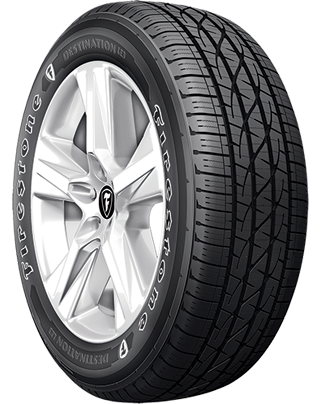
- No warranty
- All-Season
- Light Truck Tires
 Destination M/T2
Destination M/T2
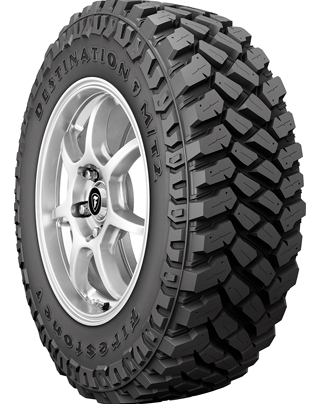
- No warranty
- All-Season
- Light Truck Tires
 Destination X/T
Destination X/T
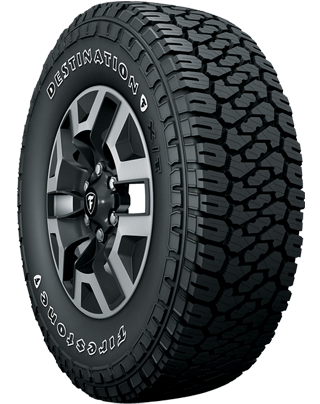
- Gold Pledge Limited Warranty
- All-Season
- Light Truck Tires

- No warranty
- All-Season
- Passenger Tires
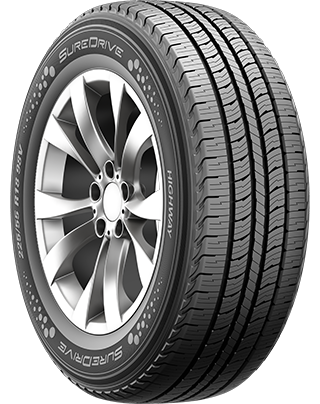
- No warranty
- All-Season
- Light Truck Tires
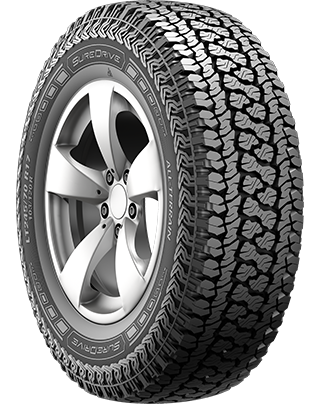
- No warranty
- All-Season
- Light Truck Tires
 Extensa A/S II
Extensa A/S II

- No warranty
- All-Season
- Passenger Tires
 OPEN COUNTRY A/T III
OPEN COUNTRY A/T III
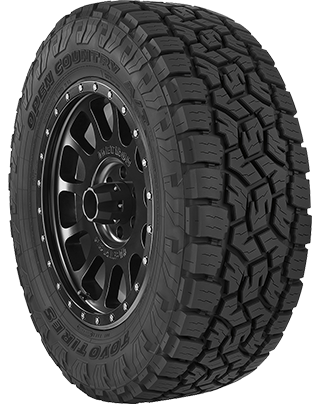
- No warranty
- All-Season
- Light Truck Tires
 OPEN COUNTRY M/T
OPEN COUNTRY M/T
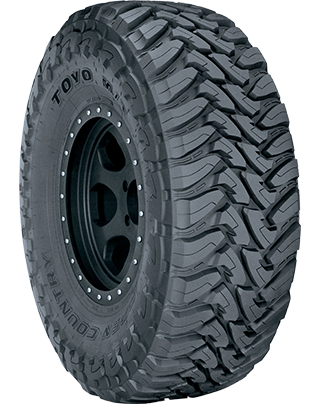
- No warranty
- All-Season
- Light Truck Tires
 OPEN COUNTRY R/T
OPEN COUNTRY R/T
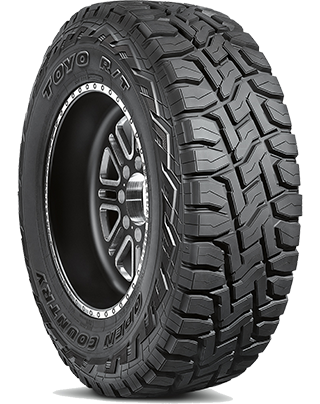
- No warranty
- All-Season
- Light Truck Tires
Choosing 1990 Toyota 4Runner Tires
Beyond the correct tire size, you also want to consider a handful of other factors when buying new Toyota 4Runner tires like which tire brands you like most and where you drive. Think about where you live (countryside vs. city vs. mountains) and the kind of unexpected weather you're likely to experience when evaluating your driving conditions. It's not uncommon for drivers in states that experience all four seasons to buy more than one set of tires. one for summer and one for winter. Other drivers prefer the convenience of all-season tires. They make one trip to the tire shop and they're pretty much ready for rain, light snow, or sun!
Driving style is next on the list to think about when buying tires. If you're an avid off-roader who yearns to pioneer new paths, you have very different tire needs than a highway commuter who doesn't hit the hills very often. Talk to a tire technician at Firestone Complete Auto Care for help choosing the best tire for you, or start shopping for Toyota 4Runner tires online.
1990 Toyota 4Runner Tire Installation & Rotation
Firestone Complete Auto Care has been a leading tire provider for more than a century. We're your one-stop shop for tire installation, rotation, and ongoing maintenance! Shop 1990 Toyota 4Runner tires online and schedule an installation appointment.
1990 Toyota 4Runner Tire Q&A
-
Why does Toyota tire inflation matter? Even a tiny decrease in tire pressure could impact your safety and fuel economy. Maintaining proper tire pressure can help increase fuel economy, improve braking time, and boost tire lifespan.
-
Why are there numbers on the side of my Toyota 4Runner tires? The numbers on your tire sidewall give you information about tire speed rating, traction, treadwear, tire size, and load carrying capacity. Chat with a tire technician to learn how to read the numbers on your Toyota tires!
-
How do I check the tread depth on my Toyota tires? Stay on top of your tire tread depth to help avoid a dangerous drive. You can check tread depth with a penny. Hold the penny so that Abraham Lincoln is facing you, then place your penny into a tread groove upside down. If you can see the top of Abe’s head, your tread is shallow and it might be time for new Toyota 4Runner tires. Grab a penny. Hold the so that Abe Lincon's head is facing you and his hair is pointing toward the ground. Then, place the penny into a tread groove. If you can see the top of Abe’s head, your tread is shallow and it might be time for new Toyota 4Runner tires.
Repair Services for Your 1990 Toyota 4Runner
Want more details? Choose a service below to read more about Toyota 4Runner repairs at Firestone Complete Auto Care.
Get Repairs for Your 1990 Toyota 4Runner
No driver looks forward to car repairs. We’re here to change that, though. At Firestone Complete Auto Care, we want to make car repair painless and hassle-free. When it’s time for 1990 Toyota 4Runner repair services, head to your nearest Firestone location and rest easy knowing that your 4Runner is in capable hands. We’ll start by assessing what repairs may be needed, and we’ll provide you with a detailed explanation of what we recommend. If a repair isn't necessary, we won't recommend it.
How Much Does Toyota 4Runner Repair Cost?
The cost to repair your 1990 Toyota 4Runner depends on which repairs are needed, prices of appropriate replacement parts, how much labor the repair will take, and the state you live in. And check back often — we update our deals regularly!
A few different aspects can influence repair costs for your 1990 Toyota 4Runner, like
Questions About 1990 Toyota 4Runner Auto Repairs
-
Do I still need scheduled maintenance even when nothing is wrong with my Toyota? The cheapest 1990 Toyota 4Runner repair is the one that isn’t necessary in the first place! Staying up-to-date with your car’s scheduled maintenance services is a great way to keep future repair costs low.
-
What does it mean to be 'in tune' with your car? No, we’re not talking about finding the best jams on the radio! You know your car best, and you’re the first person who will notice if something doesn’t feel right (like new smells, sights, or sounds coming from your car). If you sense that something is 'off,' stop in for a Courtesy Check to have these symptoms checked out ASAP. Early action could help you prevent Toyota 4Runner repairs.
-
Why do you recommend certain repairs for my Toyota? Talk to your technician. We'll never recommend a service or repair for your 1990 Toyota 4Runner that we don't think is necessary for your safety.
Brake Repair for Your 1990 Toyota 4Runner
Your Toyota 4Runner may be powered by a strong engine. But if you can’t brake, it might as well be scrap metal. If you’re experiencing squeaky brakes or a loss of braking power, don’t wait! Safe driving is difficult when your brakes are anything but their best. Plus, waiting can lead to more expensive parts wearing out and requiring replacement. Get your 1990 Toyota 4Runner brakes fixed at Firestone Complete Auto Care. Our brake repair services include brake pad/shoe removal and replacement, brake rotor/drum resurfacing, brake fluid exchange, and brake caliper and wheel cylinder service.
Answers to Your 4Runner Brakes Questions
-
What is causing my 4Runner to shake when I brake? If your 4Runner shakes when you brake, you could be dealing with warped rotors, faulty brake calipers, worn brake pads or rotors, or loose or worn suspension parts. Schedule a free brake inspection at Firestone Complete Auto Care for help diagnosing your brake issue.
-
What is the average lifespan of 4Runner brake pads? Brake pads generally last between 30,000 and 40,000 miles. Your driving can affect how long your 4Runner brake pads last, though. For example, mainly driving on highways and gradually braking can help increase the lifespan of your brake pads, and carrying hefty loads or riding your brakes can shorten it.
-
Does brake fluid leak when the car is off? Because your 4Runner brake system is a closed hydraulic system, it should not leak brake fluid. However, if components in your brake system have worn out or been damaged, it might cause brake fluid to leak.
Repairing Your Toyota 4Runner Drivetrain
Drivetrains for front, rear, and all-wheel-drive and 4WD vehicles are quite different, so you don't want to go to just anyone for drivetrain repair. You want to go to Firestone Complete Auto Care. We can take care of most 1990 Toyota 4Runner drivetrain components Your 4Runner might need driveshaft repair if you notice clunks when shifting, vibration as your vehicle accelerates, resistance when turning, or heavy vibrations in your floorboards.
1990 Toyota 4Runner Drivetrain Q&A
-
How do I know if my Toyota drivetrain is damaged? Your Toyota 4Runner drivetrain might be damaged if you notice strange noises from the rear of your vehicle, see fluid leaking, or have issues turning.
-
Why is my 4Runner malfunction indicator light (MIL) on? A multitude of problems can activate your 4Runner’s malfunction indicator light (better known as the check engine light), including issues with the engine, transmission, sensors, electrical system, or connectors.
-
How concerning is a drivetrain malfunction in my 4Runner? Don't ignore a drivetrain malfunction in your 4Runner. As soon as you notice a problem, have it checked by a professional mechanic to diagnose the issue and carry out any necessary repairs. Driving with a faulty drivetrain is risky and may further damage your 4Runner.
1990 Toyota 4Runner Alignment Services
Alignment services involve precise adjustments to your Toyota 4Runner’s suspension system, which serves to attach your wheels to your vehicle. During the service, calculated changes are made to the angles of your tires. This is so that your tires hit the road at an optimal angle for your vehicle’s performance — just as Toyota intended. When you bring in your 1990 Toyota 4Runner, we’ll perform an alignment check first. After that, we can adjust your wheel alignment angles until they match Toyota’s recommended measurements.
Toyota 4Runner Alignment Questions
-
Are there road conditions that can hurt my Toyota 4Runner alignment? Potholes and uneven roads can knock your car out of alignment, so stay aware of the road ahead and adjust your speed (or avoid these obstacles whenever it’s safely possible).
-
How often should you get a wheel alignment for your 4Runner? Generally, it’s wise to have your alignment looked at around every 6,000 miles or 6 months, whichever happens first. You should check your 4Runner owner’s manual to verify Toyota’s suggested interval.
-
Does getting new 4Runner tires mean you need an alignment? It’s likely not a requirement to get an alignment when you install new tires on your 4Runner, but it's a smart idea to do so anyway. An alignment can help ensure even tire wear, smooth handling, and better fuel efficiency.
1990 Toyota 4Runner Engine Repair
If your 1990 4Runner engine needs repairs, our expert techs will let you know what needs to be done and why before they get started. We make recommendations, but you make the final decision. If a repair isn’t urgent right now, we’ll let you know. But if immediate repairs are necessary for your safety, we’ll make sure that's clear, too. We want to give you all the details you need to make an informed decision about your engine repairs. By choosing Firestone Complete Auto Care for 4Runner engine repairs and you can drive easy knowing that we use Toyota-approved parts and fluids — timing belt, engine oil seal, fuses, or another part.
Questions About 1990 Toyota 4Runner Engines
-
Why does the check engine light come on when I start my 4Runner? It’s usually normal for your check engine light to turn on upon ignition. This is just your 4Runner testing its circuits. The dash light shouldn't stay on. If it does, you might want to bring your vehicle in for service.
-
Why does my Toyota engine sound different? Strange under-the-hood noises can point to problems within your Toyota 4Runner engine. Tapping or knocking could mean you need an oil change. Whistling sounds could mean you have an intake leak or misaligned belt. Squealing may be caused by a loose fan belt, and grinding could be a sign that something is wrong with your brakes — not the engine.
-
Are you unknowingly damaging your Toyota 4Runner engine? Certain driving habits can hurt your engine. These habits include driving on an empty fuel tank, revving your engine while the vehicle is in Park, or slamming the gas pedal while the engine is still cold. Steer clear of these habits to help protect engine performance and efficiency.
Get Your Toyota 4Runner Tire Repaired
Firestone Complete Auto Care is here for you when your 1990 Toyota 4Runner needs flat tire repair or inspection. There’s a chance your tire could be plugged and patched (rather than replaced). Our technicians can inspect your tire and let you know if it is safe to repair. We’ll begin by taking a look at where the damage is, the type and extent of the tire damage, and how all of your tires are wearing.
If we determine that your 1990 Toyota 4Runner tire can be safely repaired, the repair process is actually fairly simple: (1) Remove the tire from the wheel for inspection and repair, (2) fill the puncture to keep the moisture out, and (3) re-seal the inside lining of your tire so that air won’t escape.
Your Questions About Toyota 4Runner Tire Repair, Answered
-
How soon should I have my flat tire repaired? Driving on a flat or underinflated tire can put extra stress on your wheels and alignment. While it’s sometimes necessary to drive a short distance on a flat tire to get to a safe place, don’t take any other trips in your 4Runner until you can have the flat tire repaired or replaced.
-
Can I use an emergency/temporary sealant to fix my Toyota's flat tire? A temporary sealant may be able to help you get to a repair location safely. But temporary or emergency sealants could possibly damage TPMS sensors, and in some cases may even void the warranty on your Bridgestone or Firestone tires. If your tire needs extensive repair, sealant can add time and labor costs to the process.
-
What is causing the tires on my 4Runner to keep losing air? If your 4Runner tires are always losing air, you may have a puncture, damaged wheel, or leaking valve stem.
1990 Toyota 4Runner Maintenance
You want your Toyota 4Runner to last as long as possible. If you put in the effort to keep up with proper maintenance, you could hit 200,000 miles (or beyond!) in your 4Runner.
1990 Toyota 4Runner Maintenance Information
Instead of waiting for an issue to arise with your 4Runner, you can stay ahead of problems before they even begin. It’s as easy as following the recommended maintenance schedule that’s been written specifically for your 1990 Toyota 4Runner! Toyota knows your vehicle inside and out (they made it, after all!), so they’ve designed this schedule with your car’s unique needs in mind. Scheduled maintenance services can vary depending on driving conditions, climate, and other factors; however, recommended maintenance usually includes services like oil changes, tire rotations, brake pad replacement, filter changes, and fluid checks and exchanges. Staying on track with routine service appointments can help your 4Runner perform better, decrease your risk of dangerous malfunctions on the road, and maybe even save you the headache of dealing with common 1990 Toyota 4Runner problems in the future.
Overview of Essential Toyota 4Runner Maintenance Needs
Head to your nearest Firestone Complete Auto Care in your 1990 Toyota 4Runner for factory-recommended routine maintenance and our technicians will jump right in with a Courtesy Check. The Courtesy Check helps us see what we’re working with under the hood, and allows us to alert you to any potential problems before they worsen. During a Courtesy Check, we’ll always check your battery, then we’ll move on to inspect your 4Runner’s head and tail lights, tires, fluid levels, alignment, and windshield wipers.
Firestone Complete Auto Care is your spot for 1990 Toyota 4Runner maintenance. Don’t wait until something goes wrong with your car. Visit your nearest location for proactive maintenance today.
Questions About 1990 Toyota 4Runner Maintenance
-
What do I do if I hit a pothole in my Toyota 4Runner? Watch out for pothole damage. If your 1990 4Runner is pulling to one side or the other, your tires or suspension system could be calling out for help.
-
When should I switch my Toyota 4Runner to high mileage oil? Got 75,000+ miles on the odometer? Consider high mileage motor oil. High mileage oil is formulated to address the specific problems encountered by high mileage vehicles, or those with more than 75,000 miles. It can help reduce oil consumption, smoke, and emissions from older Toyota 4Runner engines.
-
Can Toyota dashboard warning lights wait? Because there might be a problem under the hood. Those warning lights are there for a reason! As soon as you notice that one’s illuminated, take your Toyota 4Runner to Firestone Complete Auto Care so you can address any small problems long before they worsen.
Battery Size & Replacement for 1990 Toyota 4Runner
Not sure what battery to get for your Toyota 4Runner?
| Battery | Engine | Warranty | Cold Cranking Amps | |
|---|---|---|---|---|
| 26-3 | L4/2.4L | Replacement 24 months | Performance months | 525 |
| 24FT-5 | V6/3.0L | Replacement 24 months | Performance months | 600 |
Car Batteries for 1990 Toyota 4Runner
Generally, car batteries last from three to five years. Don’t get stranded by your 4Runner’s car battery. Replace it regularly instead! Pay attention to clues that your battery is on its way out. A lagging starter, a blinking battery or check engine light, swollen battery case, corroded battery posts, or dim headlights may all indicate that your battery needs attention.
Plus, at Firestone Complete Auto Care, we’ll test your battery for free. Visit us for a complimentary battery check and, if necessary, a battery replacement to help keep your 1990 Toyota 4Runner running! Automotive batteries are just one of our many areas of expertise. Our technicians are well-acquainted with Toyota’s service specs for 4Runner battery CCAs and reserve capacity. Get help figuring out the battery size that's best for your 4Runner, and schedule a fast car battery replacement at your earliest convenience.
Answers to Your Toyota 4Runner Car Battery Questions
-
Why won't my Toyota 4Runner battery stay charged? A car battery that needs to be jump-started every time is as good as dead. It may be getting old. Or, you’ve been leaving the doors slightly open and the dome lights on during the night. Stop in for a free battery check at your nearest Firestone Complete Auto Care and learn more about your battery's charge.
-
How long do car batteries last? A car battery normally lasts three to five years, but this number can vary based on battery type, your driving habits, and battery maintenance.
-
What is the white, crusty substance accumulating on my 4Runner’s battery post? If you notice white, crusty stuff around the battery terminals of your 4Runner, it's likely corrosion. A chemical reaction between battery acid and the air can create a white, powdery substance that builds up over time on the terminals. This buildup can interfere with the electrical connection between the battery and your 4Runner’s electrical system, potentially leading to poor performance, difficulty starting, and other issues.
Oil Changes for 1990 Toyota 4Runner
Your 1990 4Runner’s oil should be changed according to Toyota’s recommended oil change intervals. No matter the mileage, your 4Runner may need its oil changed ASAP if your check engine light is on, you hear knocking sounds coming from the engine, smell oil inside the car, or see an excess amount of vehicle exhaust. You may also need an oil change more frequently than Toyota recommends if you haul heavy loads, frequent dusty roads, go off-roading a lot, or go at low speeds on long distance trips.
Your local Firestone Complete Auto Care has the right 1990 Toyota 4Runner motor oil: either synthetic or conventional. Check your owner's manual and talk with a technician to select the right Toyota 4Runner oil, whether it's Quaker State® Advanced Durability™ conventional oil, Pennzoil® High Mileage Vehicle® motor oil, Pennzoil Platinum® Full Synthetic motor oil with PurePlus™ Technology, or Shell Rotella® heavy-duty engine oil. In an oil change service, an auto technician will change your 4Runner’s oil, replace and recycle your used oil and oil filter, inspect the rest of your car’s filters, refill vital car fluids, and perform a free inspection on the rest of your vehicle. Let the experts take care of your 4Runner’s engine by making an oil change appointment today.
1990 Toyota 4Runner Oil Change Questions
-
What can cause the oil light on my Toyota 4Runner to illuminate? The oil change light in your Toyota 4Runner could be triggered by an overdue oil change. However, if the oil pressure light is on, you may be dealing with low engine oil, a failing oil pump, a clogged oil filter, or a malfunctioning oil pressure sensor.
-
How hard is it to change Toyota 4Runner oil at home? Changing your own oil isn't as convenient as you might think. It requires special tools and old oil must be disposed of properly. Having your oil professionally changed reduces the chances of something going wrong with the oil change, but also with your vehicle down the road.
-
Why is my Toyota exhaust smoke gray or blue? There could be an oil leak and your engine is burning oil. Time to have a qualified technician check things out. The leak could be caused by several issues like leaking valve seals, damaged piston rings, or worn cylinder walls.
1990 Toyota 4Runner Engine Tune-Ups & Maintenance
Routine engine tune-ups can bring power back to your 4Runner. The Firestone Complete Auto Care location in your community offers several Toyota 4Runner engine tune-up services. The first is the standard Firestone Tune-Up. The standard Firestone Tune-Up includes new spark plugs (and installation!), a thorough inspection of engine components, and a lifetime parts warranty*. A second service option replaces the air and fuel filter in your 4Runner. Yet another service is a fuel system cleaning process, which involves removing varnish, dirt, and carbon deposits that have built up inside the fuel injectors, throttle body, and throttle plate in your 4Runner. This goes a long way in boosting your fuel system’s overall performance. Here’s something to remember when choosing services: the mileage and service history of your 4Runner can determine what kind of service it needs. Chat with a Firestone technician before you jump into a specific service to ensure your engine tune-up money is well-spent.
*Ask a Firestone Complete Auto Care teammate about full terms and conditions for warranties.
Common Engine Tune-Up Q&A for 1990 Toyota 4Runner
-
When should Toyota 4Runner spark plugs be replaced? Replace spark plugs on time or about every 30,000 miles or so. Without the spark of electricity created by spark plugs, your engine doesn’t have the combustion it needs to start — which could leave you stranded on the road. Always replace your spark plugs on time based on Toyota’s recommendations.
-
What should I do if I see leaks under my 4Runner? Puddles could indicate an oil leak, coolant leak, or brake fluid leak– all of which can critically hurt your engine. Have your engine inspected as soon as you spot a pool of liquid in your usual parking spot.
-
How frequently do the fuel injectors in my Toyota 4Runner need to be cleaned? The frequency at which car fuel injectors should be cleaned can vary depending on several factors, including the type of fuel used and the driving conditions. Some manufacturers generally recommend a fuel system cleaning as part of your general car maintenance, or as needed based on symptoms of poor fuel system performance.
1990 Toyota 4Runner Suspension Service & Repair
During the first few years you had your 1990 Toyota 4Runner, the ride was probably so smooth that you didn’t even think about it! But these days, things are starting to feel a bit rough. Maybe your 4Runner jolts, sways to one side, or makes an unusual noise when going over a speed bump. The first sign of trouble is the best time to bring your 1990 Toyota 4Runner in for suspension and steering service. We'll get to the root of the problem and, if your 4Runner suspension system needs repair, we’ll go over the services you need and how much they will cost before we do any work.
1990 4Runner Steering & Suspension Q&A
-
Why is my Toyota 4Runner bouncing excessively? If your shocks or struts are in bad shape, they can’t dampen road bumps like they should. This can cause your 4Runner to bounce more than usual.
-
Why does my 4Runner tilt forward when I hit the brakes? When you brake, the forward momentum combined with your vehicle's weight sends a lot of force to the vehicle's front end. A bad suspension can cause all that weight and force to push the front end downward.
-
Does treadwear and tire pressure impact my 4Runner's steering and suspension? Keeping your tires properly inflated can help reduce strain on the suspension, and also help you notice when you need new tires. A tire that doesn't have an adequate amount of tread can't grip the road or function as well as the manufacturer intended.
A/C Service for Your 1990 Toyota 4Runner
Our trained technicians will do what they can to solve your 1990 Toyota 4Runner A/C problems. During an A/C performance check, we'll determine the condition of your 1990 Toyota 4Runner A/C system to evaluate what repairs are necessary (if any). This check includes a visual inspection, performance test, and pressure and leak test.
Let's say we repair your 1990 Toyota 4Runner A/C system. We will also perform an A/C evacuation and recharge. To start this process, a technician will flush out the old refrigerant from your vehicle’s A/C system. Then, they’ll use Toyota’s specifications to evacuate the system. Finally, we’ll recharge the A/C system with new refrigerant.
Frequently Asked Questions for 1990 Toyota 4Runner A/C Systems
-
Why is my 4Runner A/C blowing hot air? If your car’s air conditioning isn’t blowing cold air at all (or it tries, then turns warm), you could have a clogged expansion valve, a faulty compressor clutch, a leak, or a malfunctioning fuse in the system.
-
What causes A/C system leaks? To put it simply, age and moisture are some of the main causes of leaks in your A/C. Over time, rubber gaskets and seals can wear out, which pushes much-needed refrigerant out of your 4Runner’s A/C system — and lets outside moisture get in, which can take a toll on internal A/C components.
-
Why won’t my 4Runner’s A/C cool the vehicle when the car is stopped? Damaged or worn components in your 4Runner’s electrical or air conditioning system can cause the A/C to only work when the car is moving. You may be dealing with low coolant or a faulty cooling fan.
1990 Toyota 4Runner Transmission Service & Repairs
The transmission delivers power from the engine to the wheels so that you can drive on your terms. Since the transmission has to translate the precise amount of power for your desired amount of speed, a tiny transmission issue can take a major toll on your car’s performance. 1990 Toyota 4Runner transmission issues could include shifting delays, grinding or jumping during acceleration, the car shaking at any speed, or whistling noises or a burning smell coming from beneath the hood. If you don’t pay attention to Toyota 4Runner transmission trouble you might notice your fuel economy decrease or find that you can't drive your 4Runner at all. Our technicians are trained to service 1990 Toyota 4Runner transmission systems according to vehicle manufacturer recommendations. If you think there’s something wrong with your 4Runner’s transmission, schedule an appointment at your local Firestone Complete Auto Care to help keep your Toyota running for miles and miles.
1990 Toyota 4Runner Transmission Questions & Answers
-
Does my 4Runner's transmission fluid need to be inspected? Maintaining your Toyota 4Runner transmission fluid is one of the best ways to maintain your transmission's health. A general rule of thumb is to have your transmission fluid checked and changed about every 30,000 to 60,000 miles, but that timeline can change if you're hard on your Toyota. Leaks or low transmission fluid are easy to spot and affordable to repair.
-
Can transmission fluid leak from my Toyota 4Runner? Over time, transmission fluid can leak from your Toyota 4Runner, potentially causing transmission problems. A transmission fluid leak may be caused by a damaged transmission pan, faulty transmission cooler lines, worn-out seals, a cracked transmission housing, or an overfilled transmission.
-
Can I drive my Toyota 4Runner with a transmission fluid leak? Driving your 4Runner with a transmission fluid leak is highly discouraged. Transmission fluid is vital to the smooth operation of your transmission system, and a leak can put the entire system at risk. A transmission fluid leak may lead to decreased performance, overheating, and possibly even transmission failure.
Vehicle Inspection for 1990 Toyota 4Runner
Every service performed at Firestone Complete Auto Care includes a multi-point Courtesy Check. First, a technician will pop the hood on your Toyota 4Runner and test the battery to find out how much charge is remaining on it. We’ll follow the battery inspection with a visual check of your Toyota 4Runner’s lights, windshield wipers, filters, fluid levels, belts, hoses, tires, and alignment.
Every service performed at your nearest Firestone Complete Auto Care will include a Courtesy Check, but we can also dig deeper and perform a Complete Vehicle Inspection on your 1990 Toyota 4Runner if you prefer. In addition to a visual check of everything that's included in a Courtesy Check, a Complete Vehicle Inspection also includes an examination (by hand!) of your exhaust system, steering and suspension, and brakes. This inspection is aimed at informing you of any major problems that could require preventative maintenance.
In some cities or states, you may be able to complete your vehicle’s safety tests or state inspection at your nearest Firestone Complete Auto Care. Specific requirements for these types of inspections vary by state.
1990 Toyota 4Runner Vehicle Inspection Q and A
-
When does my Toyota 4Runner need an inspection? If you’ve noticed something that doesn’t feel quite right in your car lately, a Courtesy Check could give you peace of mind. We can help you get to the bottom of strange engine noises, a jerky steering wheel, or an engine that's hard to start.
-
My 1990 Toyota 4Runner failed the state inspection test. Can you fix it? Don’t panic! Come in for a complete inspection today and we’ll find (and repair) the root cause before you have your vehicle retested.
-
When is the best time to get a complete vehicle inspection for my Toyota 4Runner? The best time to get a complete vehicle inspection for your Toyota 4Runner is before going on a road trip for the peace of mind. Another great time is when something abnormal occurs, and you can't pinpoint the issue. You might notice new dashboard lights, hear strange noises from under the hood, or your steering wheel doesn't feel like it once did.
Radiator Service & Repair for 1990 Toyota 4Runner
Keeping up with regular radiator maintenance in your 1990 Toyota 4Runner is a huge factor in the longevity of your engine. Toyota recommends that you replace coolant (also called antifreeze) at certain intervals, but you can also take note of any signs your radiator is going bad. You could be on the verge of a radiator-induced engine breakdown if you notice leaking coolant, overheating, or an illuminated low coolant dashboard light.
At Firestone Complete Auto Care, we start by performing a thorough inspection of your Toyota 4Runner cooling system. Then, we’ll move on to a machine-powered coolant exchange. Finally, we’ll refill the flushed sealants, lubricants and chemicals, then do a pressure check to catch any possible leaks. From the heater core to the radiator cap, we’ll take excellent care of your 1990 Toyota 4Runner at Firestone Complete Auto Care.
Common Toyota 4Runner Radiator Questions
-
What does the coolant light on my Toyota dashboard mean? f the coolant light illuminates on your dashboard, your engine could be overheating. Pull over to a safe area and wait for the engine to cool down. Then, head to your nearest Firestone Complete Auto Care for a coolant system check.
-
What is causing my 4Runner to overheat? One of the main reasons your Toyota 4Runner engine might overheat is because you don’t have enough coolant. Other causes include a clogged radiator, a damaged cooling fan, a malfunctioning thermostat, or a faulty water pump.
-
My 4Runner radiator sounds like it's rumbling or boiling! What's up? Air pockets in your 4Runner’s cooling system may cause a rumbling or boiling noise. You could also have a clogged radiator or simply need to replace the radiator cap.